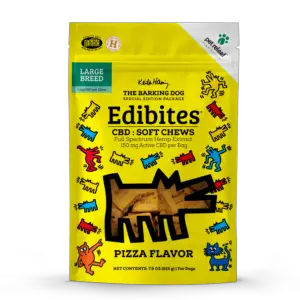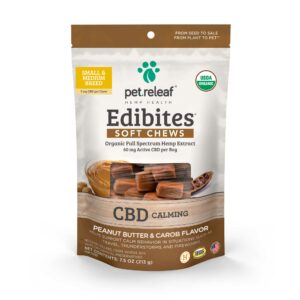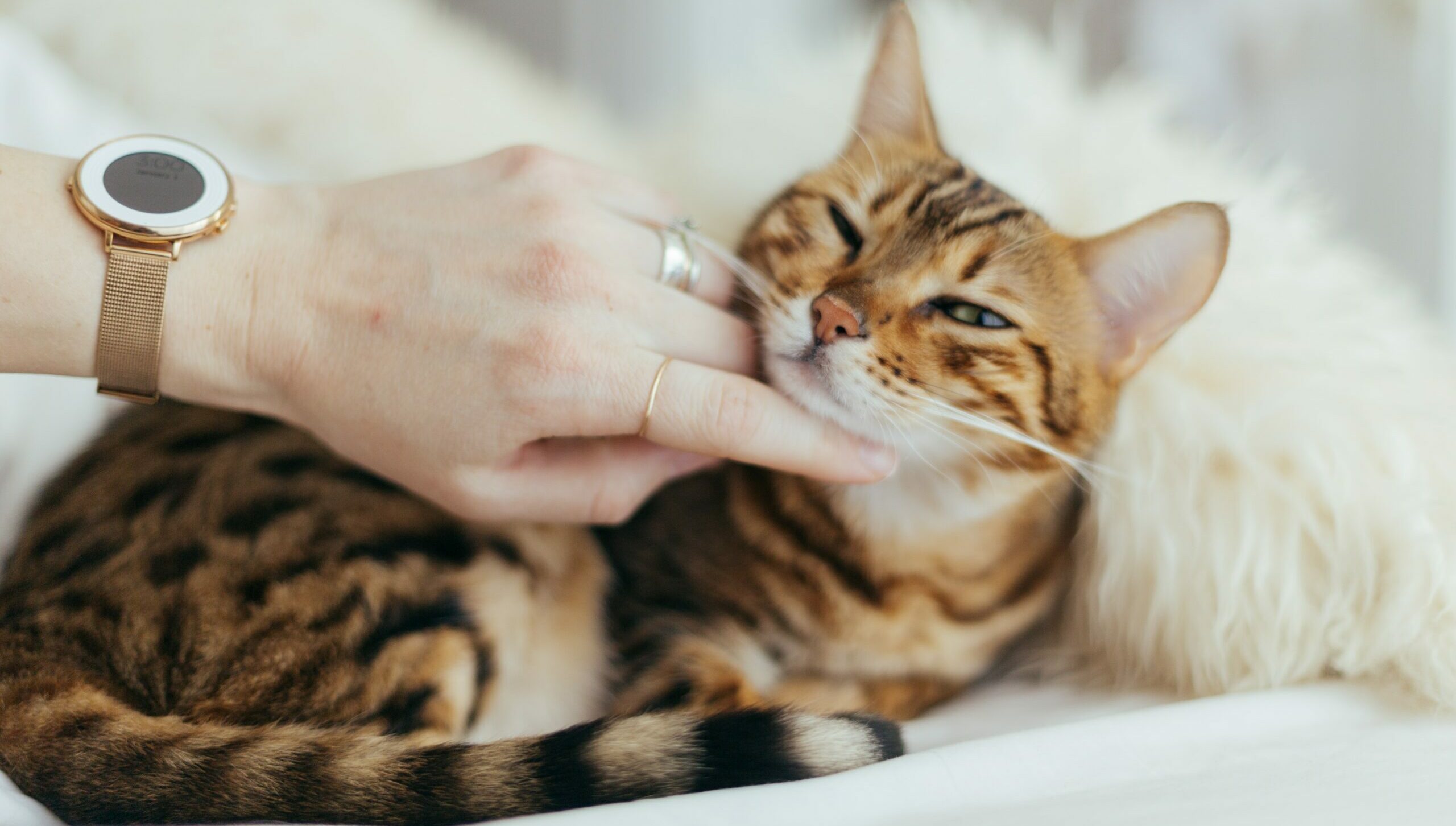
Key points
- Choosing the right diet for a cat during pregnancy is crucial to guarantee the correct development of the kittens;
- Generally, a high-quality kitten food formula is recommended during feline pregnancy;
- A diet with a higher caloric content and added nutrients is vital when a cat is breastfeeding since she is the only source of food for her kittens;
Are you getting ready to breed your cat and want to know how to take good care of your pregnant pet’s health? Or is your cat already pregnant, and you want to make sure that you feed her correctly? When your cat is pregnant, it’s crucial to provide it with a specialized diet to give the newborns a healthy start in life and to support the cat through the physical challenges of pregnancy, labor, and breastfeeding. In this article, we will discuss all the details regarding pregnant cats’ diets. But first, let us answer the question:
Table of Contents
Should I Breed My Cat?
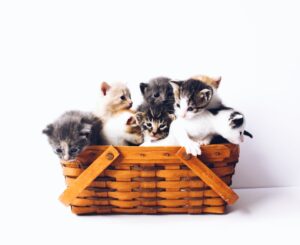
Nowadays, cat overpopulation is considered to be a big problem. So, it is recommended not to breed cats on purpose unless your cat is a purebred specimen with perfect health. It is also essential to consult a vet before breeding to determine if your pet might pass on any health issues to its kittens through genetics. Once you are sure your cat is suitable for breeding, look for an experienced cat breeder to help you organize the process.
Feeding Your Cat Before Pregnancy
To avoid complications during pregnancy and childbirth, your cat should be at her ideal weight during her heat cycle. Obesity has an adverse effect on feline fertility, and it also increases the risk of weak labor. Fat deposits in the birth canal can even make a cesarean section necessary, and overweight cats are more likely to have problems nursing their offspring. However, you should not put an overweight cat on a “diet” during pregnancy, as then the kittens will not receive the nourishment they require.
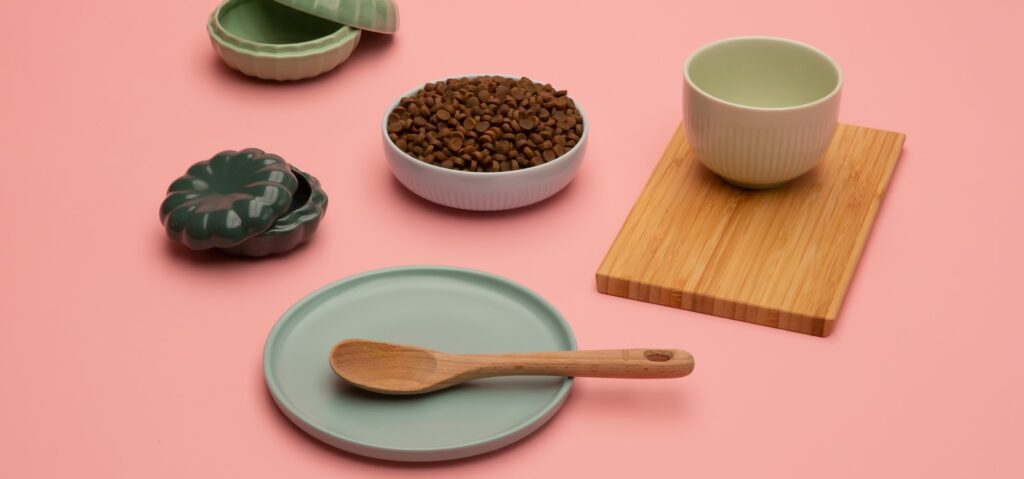
If your cat is underweight during heat, its fertility will also be reduced, as the pet’s organism protects itself against the additional stress of pregnancy by minimizing the chance of conception.
Feeding your pet a high-quality complete food for adult cats is the easiest and safest way to optimally supply the future mother with nutrients, vitamins, and minerals. If your cat is healthy, has a thick, shiny coat, ideal weight, and regular, problem-free urine and feces, you can usually assume that your cat is suitable for breeding.
Feeding Your Cat During Pregnancy
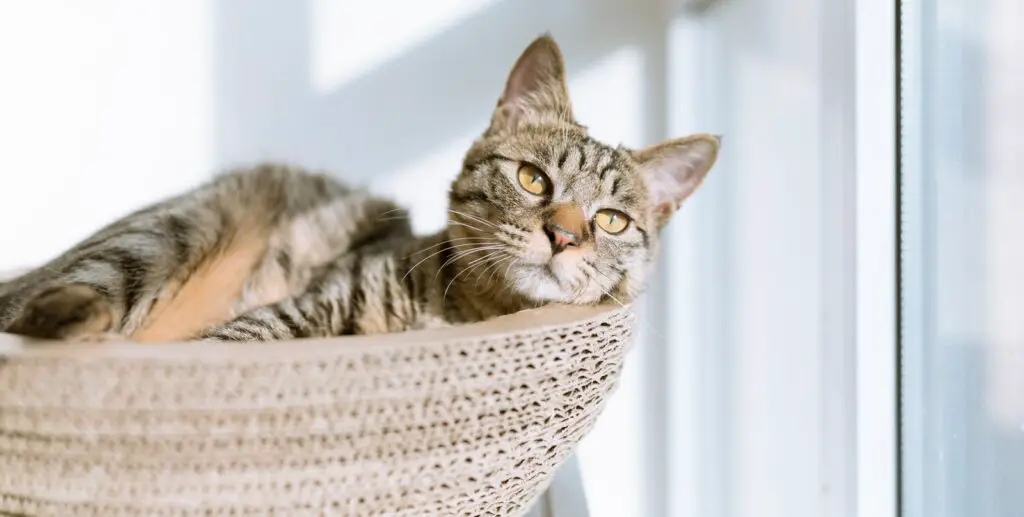
Unlike dogs, cats start building up the reserves for the energy-consuming breastfeeding process at the beginning of the 66-day gestation period. They begin gaining weight at the beginning of the second week of pregnancy, and their body mass steadily increases until they give birth. Therefore, you should adjust the amount of food you’re feeding your cat starting from the second week of its pregnancy. The vet can use ultrasound or even careful palpation to make a pregnancy diagnosis at this early stage. If the pregnancy is planned, you can switch your pet to a more energy-dense food as soon as it goes into heat.
Which Food is Best For Pregnant Cats?
Complete kitten food is the most suitable option for feeding pregnant cats. This kind of food provides the mother cat and its kittens with a lot of energy, loads of high-quality protein, and many other nutrients that are important for the offspring’s development.
Some pet food manufacturers even enrich cat food for kittens and expectant mothers with nutrients that promote healthy development. One of such nutrients is DHA (docosahexaenoic acid), an essential fatty acid necessary for brain development.
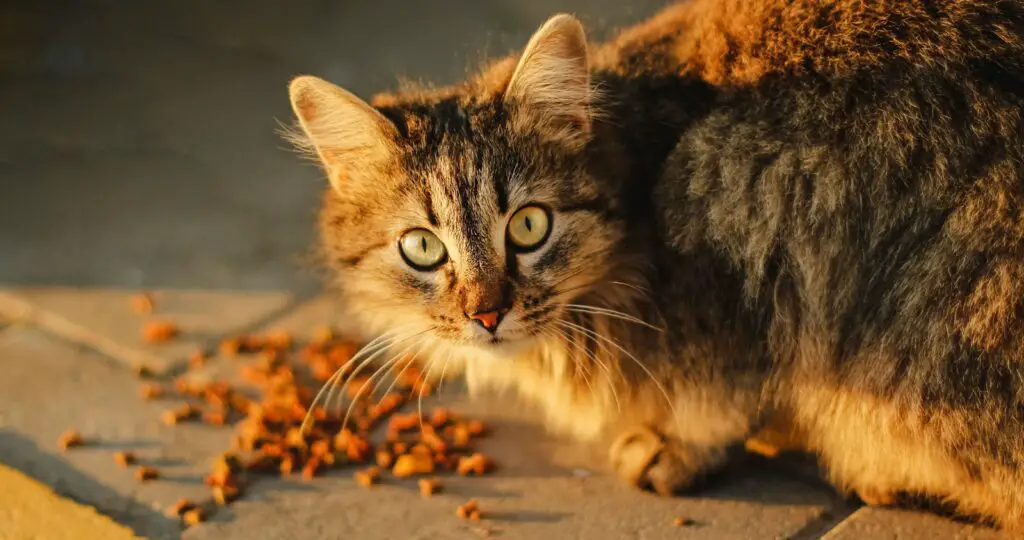
During the early weeks of your cat’s pregnancy, it is important not to overfeed her. There is no doubt that she needs plenty of good nutrition. Nevertheless, the kitten food contains more calories and nutrients she needs. If your pregnant cat becomes overweight, it can cause problems for her and the kittens. Once you have confirmation of the cat’s pregnancy, start slowly switching it to kitten food, but do not increase the amount of food the pet is given unless she is underweight or seems more hungry than usual. You should always closely monitor your cat’s condition during her pregnancy.
From the sixth week onwards, it is recommended to feed your cat smaller meals with a higher frequency. Since the kittens put more and more pressure on the mom’s stomach, it becomes harder for her to eat a lot at once. However, she still needs extra food. Giving a pregnant cat four to six meals a day is an optimal solution.
How Much Weight Should My Pregnant Cat Gain During Pregnancy?
At the end of gestation, your cat should weigh 40 to 50% more than before pregnancy (if she was at her ideal weight). That means that her weight should increase by about 5% every week. For a 4 kg cat, that would be a weekly gain of around 200g.
Despite the common belief, the mother cat doesn’t lose even half of the weight she gained during pregnancy with the birth of the kittens. The fat reserves built up during pregnancy get gradually used up during the breastfeeding period, so your cat should regain its normal weight once her kittens are fully weaned.
Feeding a Cat During Breastfeeding
As long as the mother cat is breastfeeding her offspring, she should continue to receive high-energy food for kittens. One of the advantages of this practice is that the kittens and the mother can consume the same food as soon as the little ones start to eat solid food.
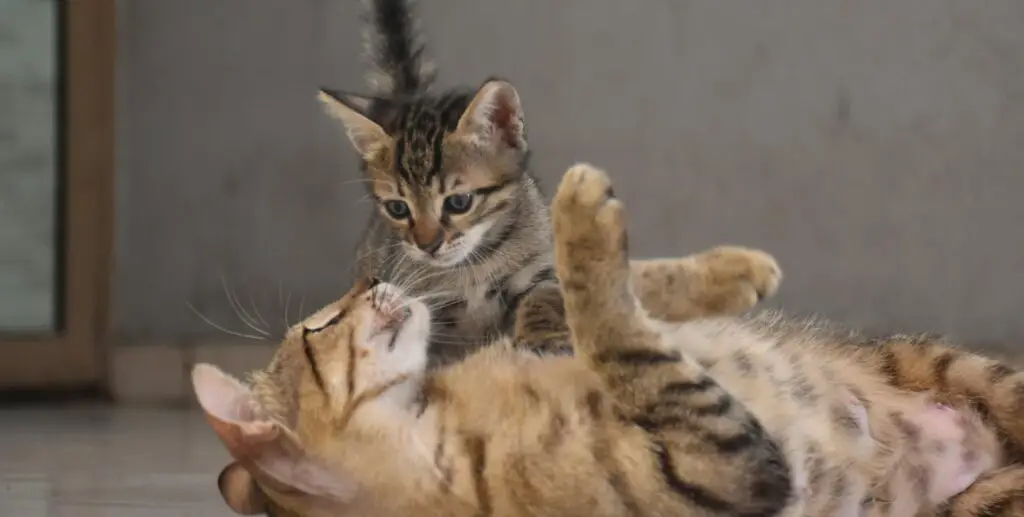
The amount of energy or food that your cat needs while breastfeeding depends on the number of kittens. At three to four weeks, the kittens will start to eat solid food. If that works well and the cat’s milk production decreases, you can also reduce the amount of food for the mother cat.
After weaning, you can switch your cat back to its regular adult cat food. However, if the pet is more than 10% below its starting weight, it makes sense to continue feeding it with high-energy kitten food for a while until the weight has normalized.
Once the cat’s weight is normal, you can try to feed your cat insect-based food manufactured by the Petcan. It will provide your cat with a complete and nutritious diet after pregnancy while simultaneously being sustainable and animal-friendly.
FAQ
How much should a pregnant cat eat?
Your cat’s food intake will gradually increase throughout the pregnancy. Generally, during the last trimester, pregnant cats consume 50% more food than usual.
Do pregnant cats not eat?
If your cat experiences loss of appetite at the end of her pregnancy, it might be a signal that she will deliver her babies very soon. However, ensure that the pet has easy access to food and water if she is hungry or thirsty.
How do you know when a cat is close to giving birth?
Some of the early signs that a cat is close to giving birth include excessive licking, pacing, restlessness, howling, meowing, or chirping. The cat’s water will also break at some point before labor.

